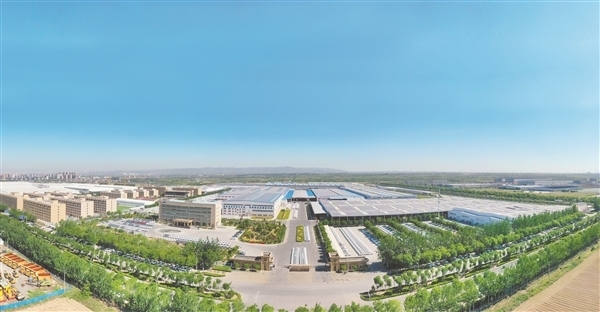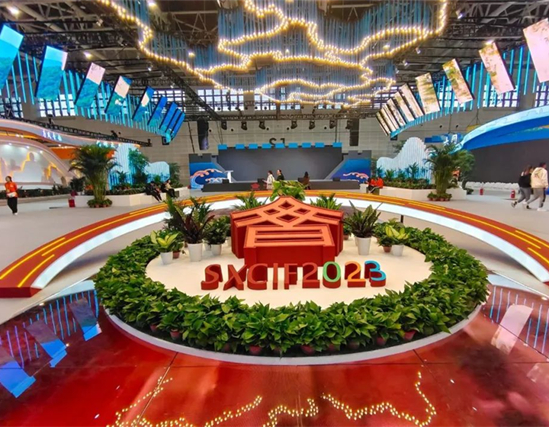Jinzhong on move to be national methanol economic demo zone
Updated: 2022-06-23

Vehicle manufacturer Geely's expansive production center in Jinzhong city. [Photo/Jinzhong Daily]
The first methanol heavy-duty truck from North China's Shanxi province will soon roll off the production line in the city of Jinzhong, marking a new breakthrough in the application of methanol energy in the province's automobile industry.
The development of methanol fuel and the promotion of methanol vehicles is a sustainable development path that can realize China's energy diversification, improve the comprehensive utilization of its resources, and achieve the goal of carbon neutrality and peak carbon.
As one of the birthplaces of the country's modern auto industry and a region with the most abundant methanol resources in the country, Shanxi has taken the lead in research on methanol vehicles and methanol fuel since 1982.
Jinzhong is an important hub for the province's auto industry, with over 65 percent of Shanxi's auto production coming from the city.
In 2012, Jinzhong became one of the earliest national pilot cities for the application of methanol fuel and methanol vehicles. Moreover, it's also the only pilot city for methanol vehicles that has passed the national inspection.
Through years of development, the city has developed formidable competitive advantages in methanol vehicle production, methanol fuel preparation technology and methanol fuel filling.
Led by the local five vehicle manufacturers, Jinzhong has developed 60 auto parts and components enterprises, and new energy vehicle industry clusters have taken shape.
In recent years, Jinzhong has started building a national methanol economic demonstration zone by focusing on pilot promotions and applications of methanol trucks, as well as expanding methanol fuel and vehicle industries based on its local strong industrial foundations.
Moving forwards, plans are for the city to promote the coordinated development of support industries – including those for engine power systems, braking systems, hydraulic control systems and special vehicle modifications – and build a complete industrial supply chain for methanol trucks.
Meanwhile, it plans to produce 1 million metric tons of methanol, 100,000 methanol vehicles and 50,000 methanol heavy-duty trucks annually. It also aims to build 1,000 methanol refueling stations and generate 50 billion yuan ($7.45 billion) in annual output value from the methanol economy.



